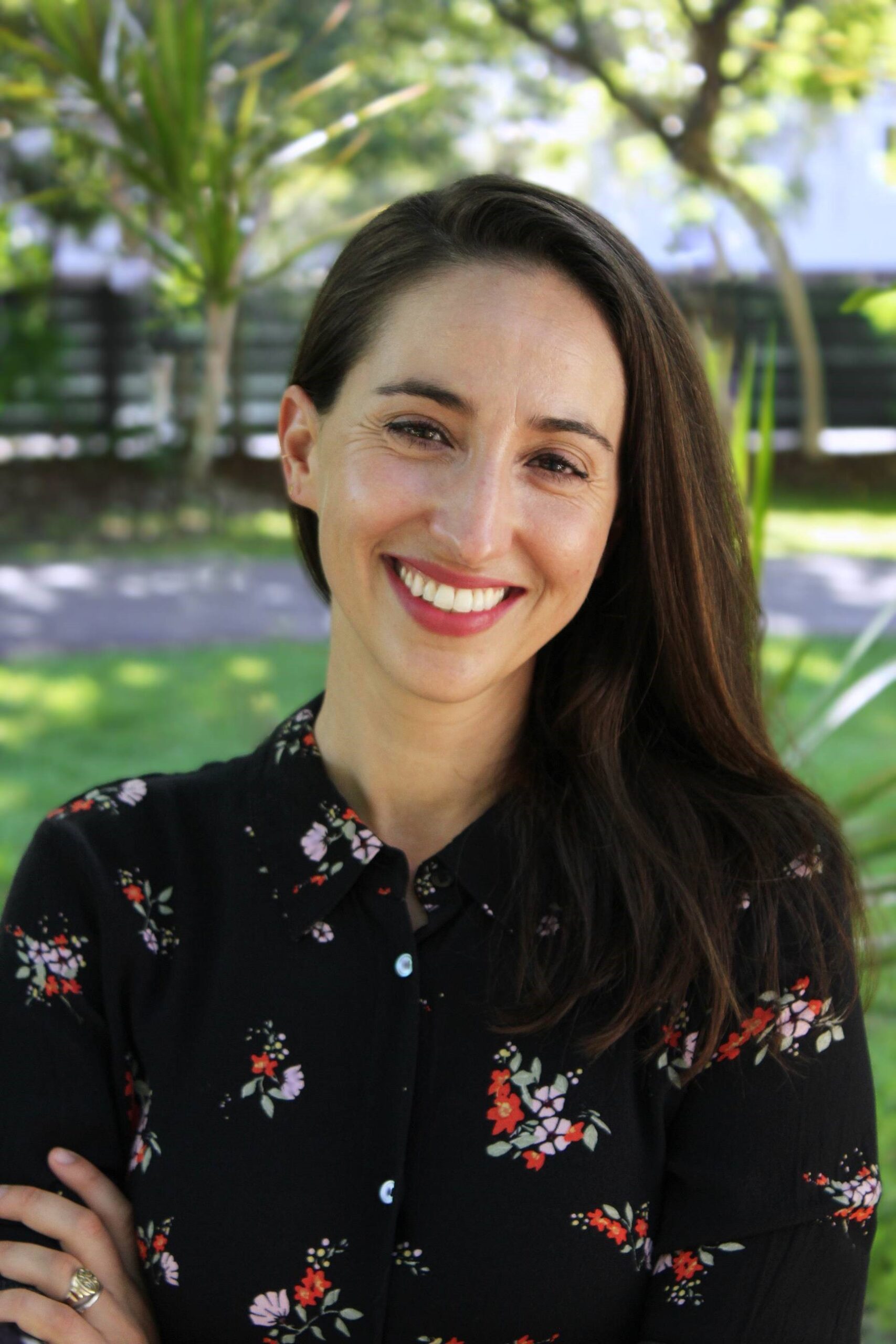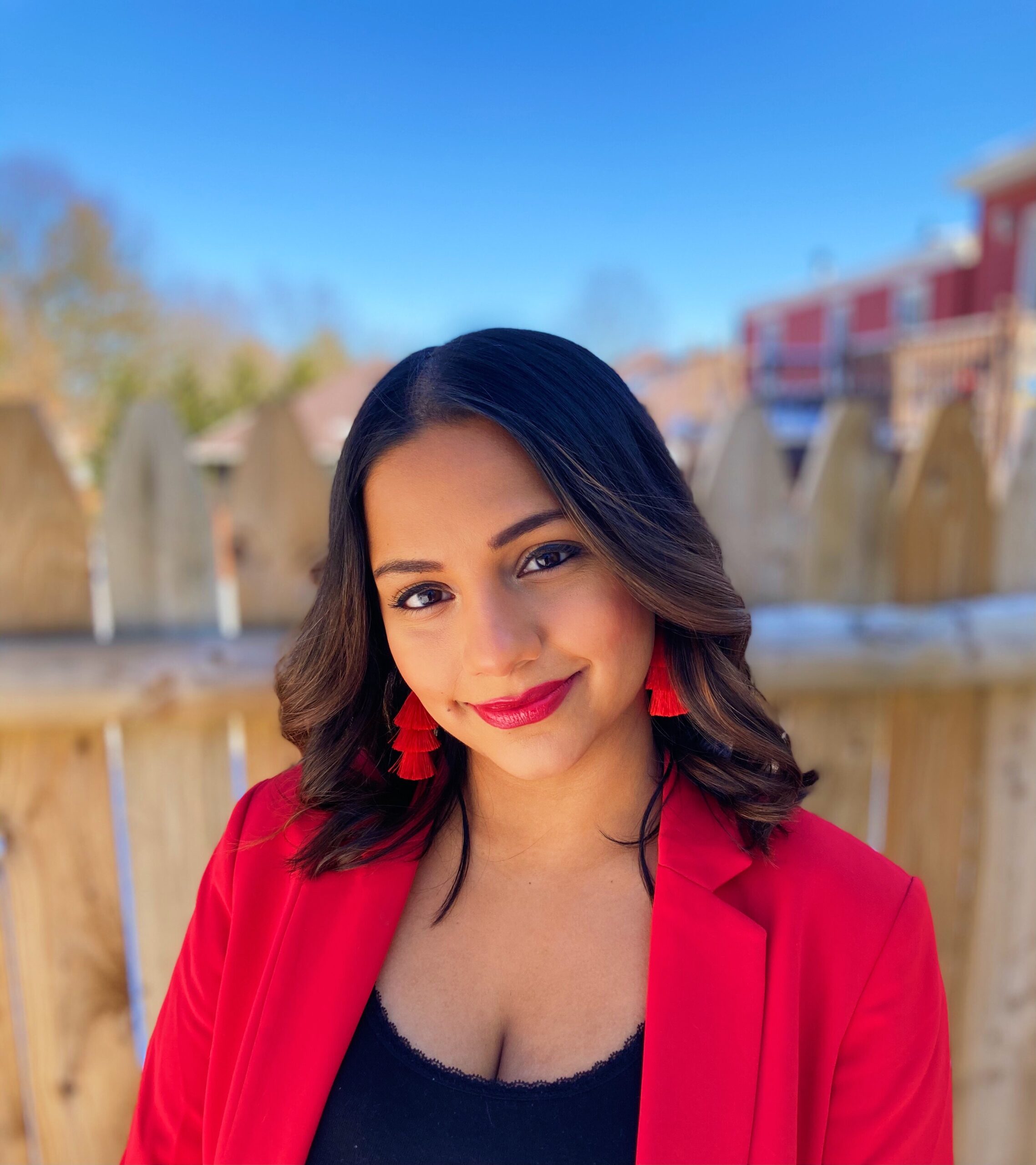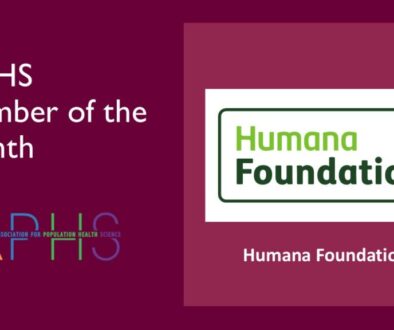University of Wisconsin Population Health Institute
Kate Duchowny, Sameera Nayak
Tell us about your institution. What is the mission of the institution?
Our Mission: We accelerate capacity to create equitable conditions for everyone to be healthy by advancing knowledge, practice, policy and system change across sectors.
Our Vision: We work toward a world in which we value each other, honor our connectedness, and build communities where everyone can thrive.
Our values animate our vision and mission, operating in concert to guide our work.
Collaboration: Build and sustain diverse partnerships that prioritize respect, mutual benefit and meaningful engagement.
Integrity: Ensure that we are honest, accountable, and responsible with the power we have.
Excellence: Aim high, seek feedback, and continually improve.
Innovation: Create, test, refine, and promote new ideas and approaches at the leading edge.
Inclusion: Ensure work has a wide reach, is meaningful, accessible and impactful.
Courage: Seek diverse perspectives and experiences that challenge our assumptions and worldviews, recognize systemic harms and commit to making positive change, even when it’s uncomfortable.
The University of Wisconsin Population Health Institute (UWPHI) is a 125+ multi-disciplinary team of faculty, staff and learners working to translate research for policy and practice. UWPHI consists of three programmatic areas: County Health Rankings & Roadmaps, Evaluation and Engaged Research and Mobilizing Action Toward Community Health (MATCH).
UWPHI has existed in various organizational forms since 1984, adopting its current name and structure in 2005. UWPHI is guided by an Advisory Board of policy and practice leaders, including bipartisan representation of the Wisconsin state legislature, and an Executive Committee of UW faculty. UWPHI is an academic partner with the Wisconsin Department of Health Services, and a member of the National Network of Public Health Institutes.
Why did you decide to make the connection between your program and IAPHS?
UWPHI shares IAPHS’ commitment to scientific innovation to improve the health of populations and reduce health disparities. Our tag line is “translating research for policy and practice”, and we are aligned with IAPHS’ focus on promoting application. We value the community, knowledge and connection that IAPHS hosts, grows and fosters.
UWPHI recognizes IAPHS as a critical organization for the cross-disciplinary learning opportunities and dissemination of influential scholarship for the field of population health. Past conferences have included UWPHI scholars presenting on topics including: transforming narratives to advance health equity; fostering inclusion and belonging: learning from local communities; and, evolving population health tools to better incorporate health equity. Another example of our partnership with IAPHS is the 2022 produced a series of nine podcasts featuring David Kindig MD, PhD, a founder of UWPHI and a population health thought leader.
We’d love to hear more about the research your members engage in. What are some themes that run through the research in your program?
We work to advance the field with a research agenda centered on population health and equity that
brings science, evidence, and conceptual frameworks into a new era. Our research is translational, undergirded by intentions to bring community priorities to the forefront, and address the complexity of historical context, power dynamics, and identities in shaping population health and equity. For example, our scholarship has contributed to the evidence base and research-to-action on disparities in population health outcomes, responsible use of data, civic health, community power building, strengthening the fields of public health and healthcare, and the promise of community health workers. We operate from a broad and inclusive view of health and equity and recognize the intersection of identities and structuring of opportunity related to race, social class, gender, sexual orientation, religion, disability, geographic and immigration status domains.
Relevant practice-focused literature and peer-reviewed publications:
2023 County Health Rankings & Roadmaps National Findings Report: Cultivating Civic Infrastructure and Participation for Healthier Communities. University of Wisconsin Population Health Institute 2023: https://www.countyhealthrankings.org/reports/2023-county-health-rankings-national-findings-report
Little O. Community Power Building in Public Health Practice: Moving from Theory to Action. Journal of Public Health Management and Practice: January 2023
Heller JC, Little OM, Faust V, Tran P, Givens ML, Ayers J, Farhang, L. Theory in Action: Public Health and Community Power Building for Health Equity. Journal of Public Health Management and Practice: January/February 2023 – Volume 29 – Issue 1 – p 33-38, doi: 10.1097/PHH.0000000000001681
Lederer A, Barrett K, Shorter C, Kenefick H, Kulik P, Morales M, Reinschmidt K, Shrestha, S. Public Health Training Centers’ Support for Community Health Workers: Case Studies of Needs Assessment, Training, and Student Field Placement Initiatives. Journal of Public Health Management & Practice.
Morales M, Shrestha S, Public Health Training Centers Partner with Community Health Worker Organizations to Train and Support the CHW Workforce. JPHMP Direct Journal of Public Health Management & Practice Blog, 2022. Public Health Management and Practice. 2022 Sept/Oct. Volume 28 – Issue 5 – p S212-S222. doi: 10.1097/PHH.0000000000001526
Pollock E. A., Givens M.L., Johnson, S.P., Voting and Civic Engagement Rights Are Eroding: What Does It Mean for Health and Equity?. Health Affairs. 2022 March 9. doi: 10.1377/forefront.20220307.730059
Givens ML, Gennuso KP, Pollock EA, Johnson, SP. Deconstructing Inequities – Transparent Values in Measurement and Analytic Choices. May 13, 2021. N Engl J Med 2021; 384:1861-1865 doi: 10.1056/NEJMms2035717.
Pollock EA, Gennuso KP, Givens ML, Kindig DA. Trends in infants born at low birthweight and disparities by maternal race and education from 2003 to 2018 in the United States. BMC Public Health 21, 1117 (2021). doi: 10.1186/s12889-021-11185-x
Faust V, Pollard E, Welch K, Hilgendorf A, Reiter G, Brown T, Thunder C, Wescott S, Wilber D, Christens BD, Wells A. Building power through reindigenization: Sharing the story of Menīkānaehkem. Journal of Community Psychology, 2021; 49, 3162-3177.
Are there any recent research projects/grants/publications that you’d like to highlight?
UWPHI received funding from W.K. Kellogg foundation for an initiative to organize academic public health around power. Provisionally termed, Health and Power Organizing Project (HPOP), this initiative acknowledges that academic public health influences society’s understanding of health and equity, the set of actions governmental public health can take to improve health and advance health and racial equity, and the future public health workforce’s understanding of the root causes and effective interventions to advance health and racial equity. This initiative will begin to organize within academic public health to bring power to the center of our work on equity and accelerate changes to the state of public health research and practice. In the next two years, we will 1) identify and convene a small set of racial and health equity leaders and champions from public health programs across the country (and, potentially, around the world) who have begun to ground their research and praxis in a focus on power; 2) develop a common agenda to help shape the field and work at respective academic institutions; and 3) adapt existing or create new academic tools and resources necessary to advance our agenda.
The HPOP initiative is working with IAPHS to join efforts in establishing pre-conference activities at the upcoming fall conference.
What makes your institution interested in interdisciplinary work?
Interdisciplinary work is necessarily at the heart of UWPHI, including approaches that center the first hand knowledge and experience of people most impacted by unfair, unjust conditions that produce health inequity. Population health science requires interdisciplinary collaboration to address the complex nature of health issues, facilitate collaborative problem-solving, enhance translational research, address power dynamics and train the next generation of researchers and practitioners.
If you do interdisciplinary work, what are the challenges? How would you like to see IAPHS support your institution’s interdisciplinary work?
IAPHS offers a space for like minded organizations to build towards these efforts together. We value the convening space and connections with scholars advancing population health improvement and health equity. IAPHS support for UWPHI with the HPOP initiative is a prime example of how the Association is helping us overcome the challenges of siloing and disconnection in working across disciplines.
Would you like to say something about who is answering the questions? How would the interested IAPHS members be able to contact you?
Dr. Sheri Johnson
https://uwphi.pophealth.wisc.edu/meet-the-director/
Dr. Marjory Givens
https://uwphi.pophealth.wisc.edu/staff/givens-phd-marjory/
Please find other bios for our staff and our leadership team: https://uwphi.pophealth.wisc.edu/faculty-staff/
Will you be at the conference this year? What’s the best way to contact you?
Yes we will attend the conference!
Please stay in touch with us:
Email: uwphi@med.wisc.edu
Sign up for our newsletter: https://uwphi.pophealth.wisc.edu/uwphi-newsletter/
https://www.linkedin.com/company/10340359/admin/
https://twitter.com/UWiscPHI





All comments will be reviewed and posted if substantive and of general interest to IAPHS readers.